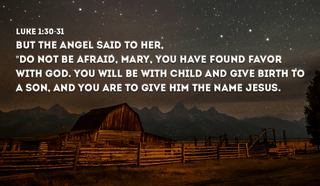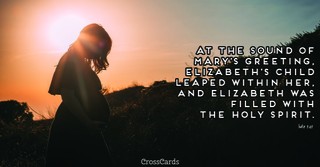- Recent Translations
- All Translations
Luke 1:34
Share
Settings
Luke 1:34 Meaning and Commentary
Then said Mary to the angel, how shall this be
This she said not as doubting the truth of what was said; for she required no sign, as Zacharias did; nor is she charged with, and blamed for unbelief, as he was; yea, it is expressly said, ( Luke 1:45 ) that she believed: nor was this a curious question, as whether she should have this son by a man in a married state, or in her present virgin state; for she clearly understood the angel to mean the latter; and therefore her words express her admiration at it, and also her desire to be informed of the manner how it should be: as to the matter of fact, she did not dispute it, but wanted to be resolved by what means it would be brought about: she knew, by prophecy, that the Messiah was to be born of a virgin, and she perceived, by the angel's declaration, that she was that virgin, but could not imagine in what way this amazing thing should be effected; and therefore proposes this question for the following reason,
seeing I know not a man?
"A husband", as the Arabic version renders it; not Joseph, nor any other man; for though she was espoused to Joseph, yet he had not taken her to wife; nor were they, as yet; come together; and before they did, she was found with child of the Holy Ghost, ( Matthew 1:18 ) she was a pure virgin, untouched by man. The words are an "euphemism", or a modest way of expressing carnal copulation; see ( Genesis 4:1 ) .

